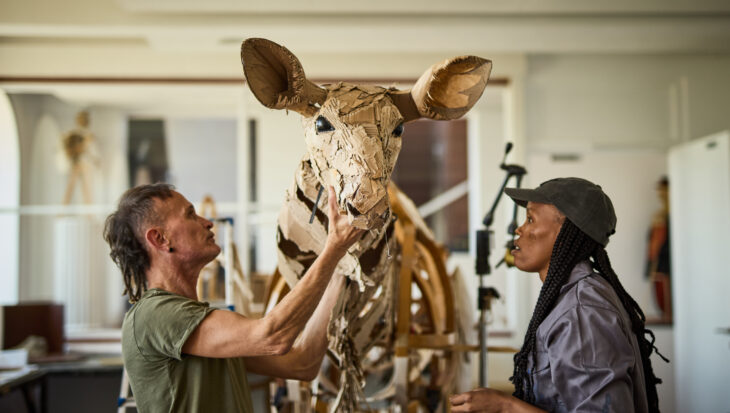‘The Herds’ will be arriving in London this Friday!
Have you heard? A breathtaking arts initiative, ‘The Herds’ will be arriving in London this Friday.
Posted 27 Jun 2025

Posted on the 27th May 2009
One of the Queen’s gamekeepers, Robbie Elliott, is to be prosecuted under the Wildlife and Countryside Act 1981, after two badgers were killed in snares at the Balmoral estate. The offence carries a maximum penalty of a £10,000 fine or 12 months in jail.
By law, gamekeepers must check snares at least every 24 hours. Elliott faces two charges of failing to check snares in May of last year. According to a Buckingham Palace spokesperson, Elliott had been suspended from duty at the time but had since returned to work, pending the outcome of the prosecution.
Snares are commonly used by gamekeepers and farmers to catch so-called ‘predator’ or ‘pest’ animals, who are perceived to pose a threat to their livelihoods. They are as indiscriminate as they are cruel. Animals, once snared, will languish in agony until they are killed, or will die from starvation or the injuries caused by the snare itself. It is not uncommon for snared animals to chew off their limbs in an effort to escape, or for their offspring to die as a result of being abandoned.
Despite this, a ban on snares was rejected last year by the then Scottish environment minister, Mike Russell.
The League Against Cruel Sports is now calling for a ban on the manufacture, sale and use of snares in England and Wales. A supporting EDM, tabled by Eric Martlew MP, is attracting an encouraging amount of support.
Please ask your MP to sign the EDM if he or she has not done so already.
See http://edmi.parliament.uk/EDMi/EDMDetails.aspx?EDMID=38641&SESSION=899 for more details.
Have you heard? A breathtaking arts initiative, ‘The Herds’ will be arriving in London this Friday.
Posted 27 Jun 2025

As the greyhound racing industry releases its annual data on the number of dogs’ deaths, a raft of well-known names - alongside their canine friends - has called upon the Government to end greyhound racing....
Posted 26 Jun 2025
